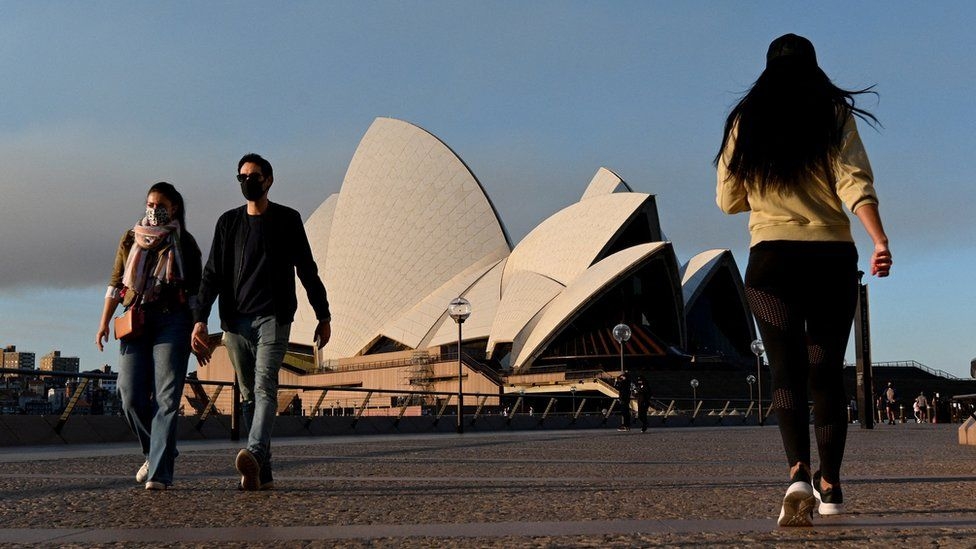Australia to reopen border from November

Australia will reopen its international border from November, allowing vaccinated travellers into the country for the first time in 18 months.
Currently only citizens and people with exemptions can enter. Outbound travel is also banned without an exemption.
The policy has been praised for helping to suppress Covid, but it has also controversially separated families.
PM Scott Morrison said states with vaccination rates above 80% would get the travel freedoms.
"It's time to give Australians their lives back," he told reporters on Friday.
Australia's mandatory 14-day hotel quarantine - which costs each traveller A$3,000 ($1,600; $2,100) - will be phased out. It will be replaced by a seven-day home quarantine for vaccinated travellers.
However the major airlines have already warned that they are not geared up for a quick ramping up of services.
Sydney, Melbourne and Canberra are currently in lockdown due to outbreaks of the virus.
That has prompted a surge in vaccine uptake in those affected areas in recent months.
New South Wales - which includes Sydney - is on track to be first state to cross the 80% threshold, in a few weeks. Victoria - of which Melbourne is the capital - is not far behind.
But some states - notably Queensland and Western Australia - have threatened to keep their borders closed until vaccine rates are even higher.
These states have managed to maintain Covid rates of or near zero, after shutting their borders to states with infections.
Key vaccination thresholds are also part of Australia's broader plan to emerge from lockdowns and "live with the virus".
Sydney - site of Australia's largest airport - is due to come out of a 13-week lockdown on 11 October.
At present, people can leave Australia only for exceptional reasons such as essential work or visiting a dying relative.
